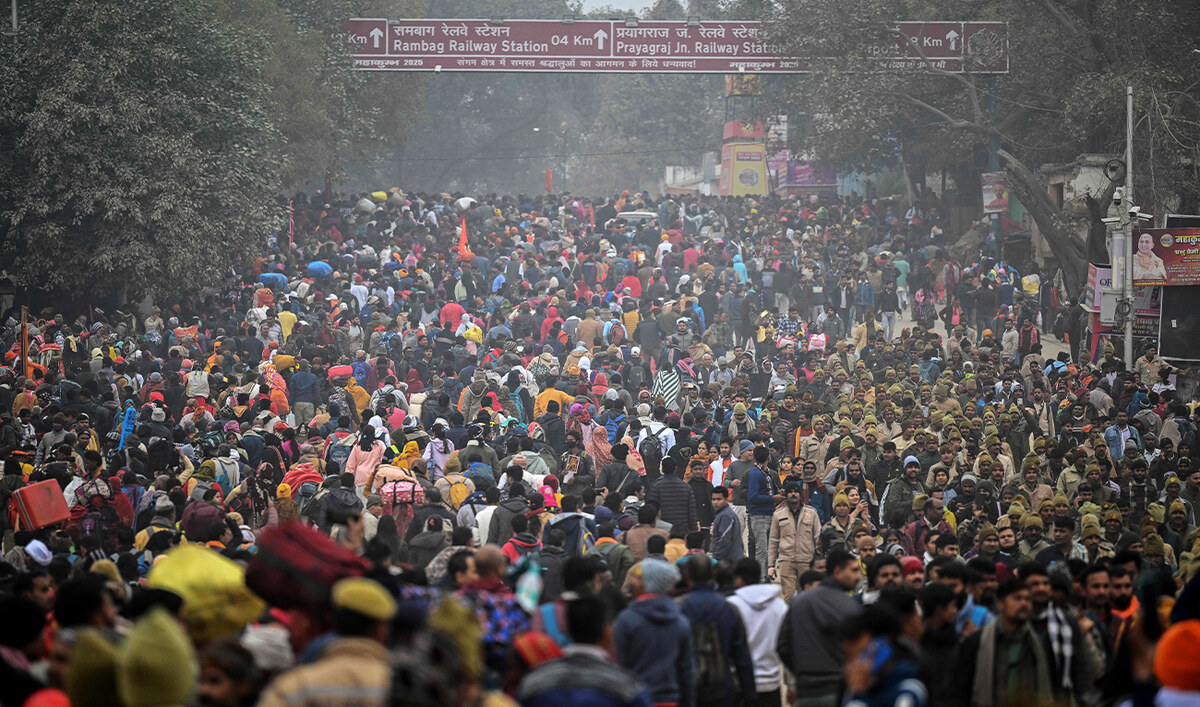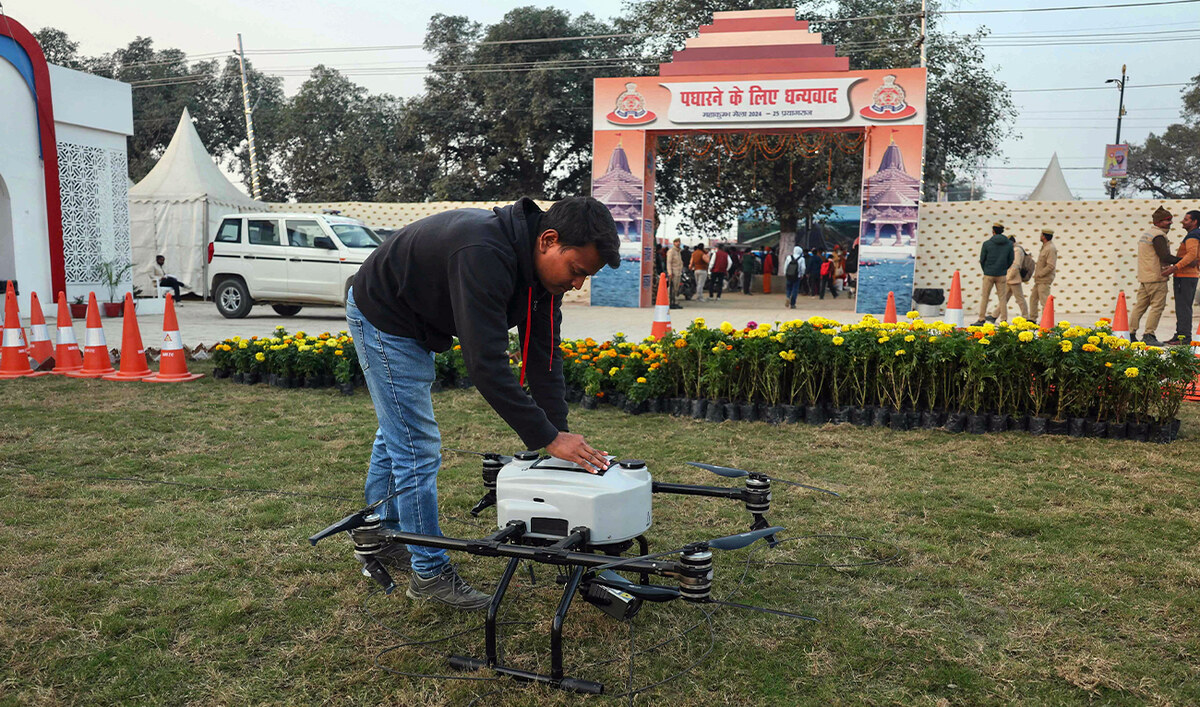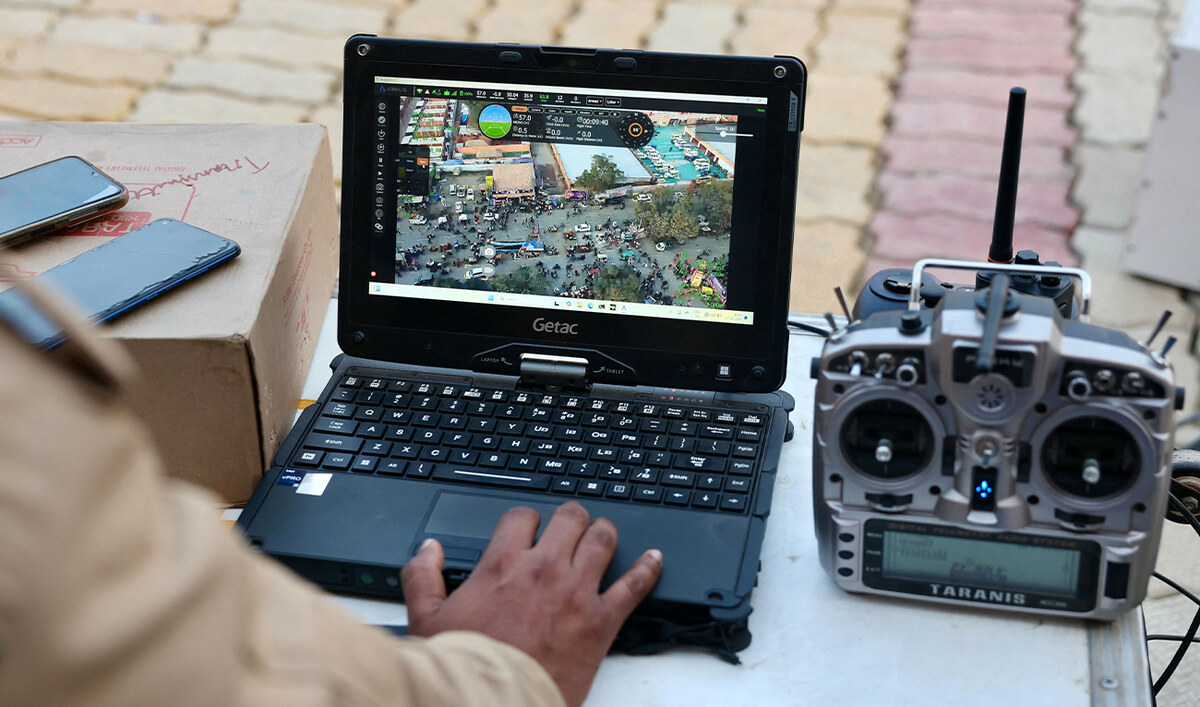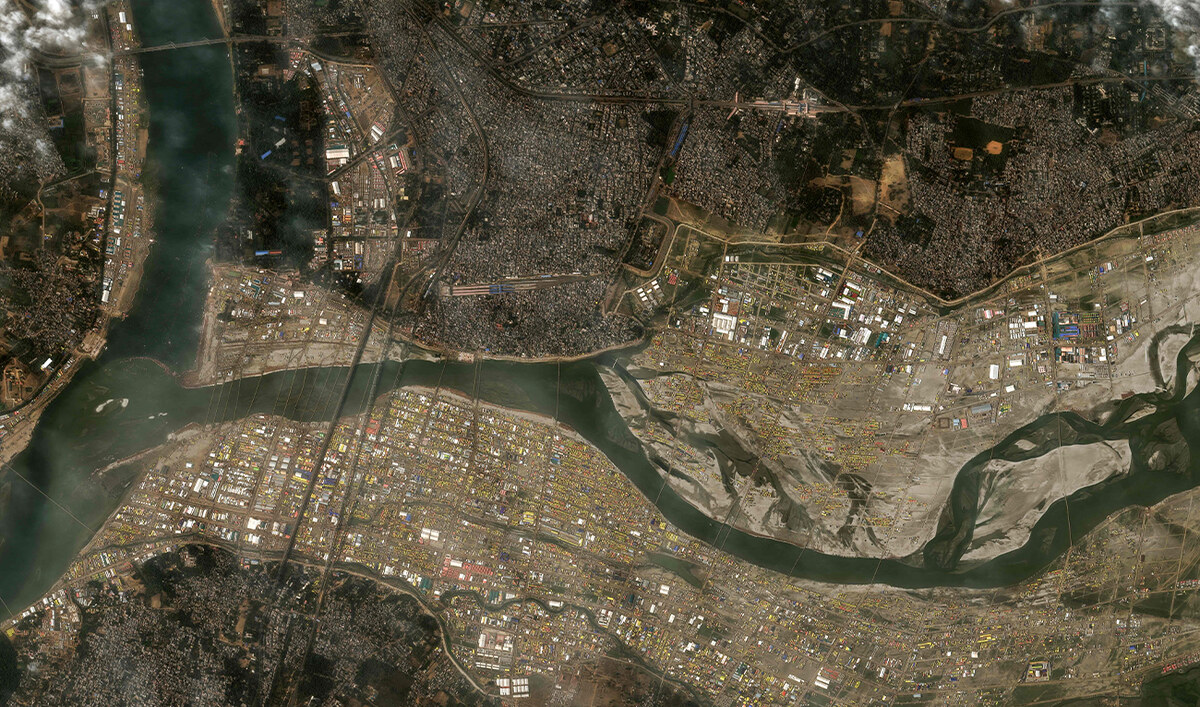KINSHASA: Three Americans accused of being involved in last month’s coup attempt in Congo appeared in a military court in the country’s capital, Kinshasa, on Friday, along with dozens of other defendants who were lined up on plastic chairs before the judge on the first day of the hearing.
The proceedings before the open-air military court were broadcast live on the local television channel.
Six people were killed during the botched coup attempt led by the little-known opposition figure Christian Malanga last month that targeted the presidential palace and a close ally of President Felix Tshisekedi.
Malanga was shot and killed soon after live-streaming the attack for resisting arrest, the Congolese army said.
The defendants face a number of charges, many punishable by death, including terrorism, murder and criminal association.
The court said there were 53 names on the list, but the names of Malanga and one other person were removed after death certificates were produced.
Alongside Malanga’s 21-year-old son Marcel Malanga — who is a US citizen — two other Americans are on trial for their alleged role in the attack. All three requested an interpreter to translate the proceedings from French to English.
Malanga’s son was the first to be questioned by the judge, who asked him to confirm his name and other personal details.
The military official chosen to translate for him was apparently unable to understand English well.
Eventually, a journalist was selected from the media to replace him, but he too had trouble translating numbers and the details of the proceedings.
“He’s not interpreting right. We need a different interpreter who understands English, please,” Marcel Malanga told the judge after the journalist incorrectly translated his zip code.
But no other translator emerged and the defendants had to make do with the journalist, who worked for the national radio.
Malanga appeared frustrated and defiant as the interview stumbled ahead.
Tyler Thompson Jr., 21, flew to Africa from Utah with the younger Malanga for what his family believed was a vacation, with all expenses paid by the elder Malanga.
The young men had played high school football together in Salt Lake City suburbs.
Other teammates accused Marcel of offering up to $100,000 to join him on a “security job” in Congo.
Thompson appeared before the court with a shaved head and sores on his skin, looking nervous and lost as he confirmed his name and other personal details to the judge.
His stepmother, Miranda Thompson, said that the family found out about the hearing too late to arrange travel to Congo but hoped to be present for future court dates. Before this week, the family had no proof he was still alive.
“We’re thrilled with the confirmation,” she said.
Miranda Thompson had worried that her stepson might not even know that his family knew he’d been arrested. On Monday, the US Embassy in Congo said it had yet to gain access to the American prisoners to provide consular services before the trial.
The embassy did not respond to a request for comment on Friday.
Thompson’s family maintains he had no knowledge of the elder Malanga’s intentions, no plans for political activism and did not even plan to enter Congo.
He and the Malangas were meant to travel only to South Africa and Eswatini, Thompson’s stepmother said.
Marcel Malanga’s mother, Brittney Sawyer, has said that her son is innocent and had simply followed his father. Sawyer and the Thompsons are independently crowdfunding for legal expenses and travel funds to be present for the rest of the trial.
Both families say they remain worried about their sons’ health — Malanga has a liver disease, and Thompson contracted malaria earlier in the trip.
“As a mother, my heart is crying each day,” Sawyer wrote on her crowdfunding page.
“My main goal each day is to bring him home.”
Benjamin Reuben Zalman-Polun, 36, was the third American on trial.
He was seen seated in the back row, and was the last to be interviewed.
He told the court he was not married and had three children.
Zalman-Polun, who in 2015 pleaded guilty to trafficking marijuana, is reported to have known Christian Malanga through a gold mining company that was set up in Mozambique in 2022, according to an official journal published by Mozambique’s government, and a report by Africa Intelligence newsletter.
A prominent Belgian-Congolese researcher on political and security issues, Jean-Jacques Wondo, also appeared at the court on Friday.
It was unclear what evidence was held against him. Human Rights Watch said it had consulted with Wondo for years on research, and his only link to Malanga appears to be an old photo.
“Wondo and others detained should be credibly charged with a criminal offense or immediately released. An arrest based only on a 2016 photo is just not credible,” Human Rights Watch said in statement on Friday.
3 Americans implicated in Congo coup attempt go on trial
https://arab.news/283fa
3 Americans implicated in Congo coup attempt go on trial

- The proceedings before the open-air military court were broadcast live on the local television channel




























